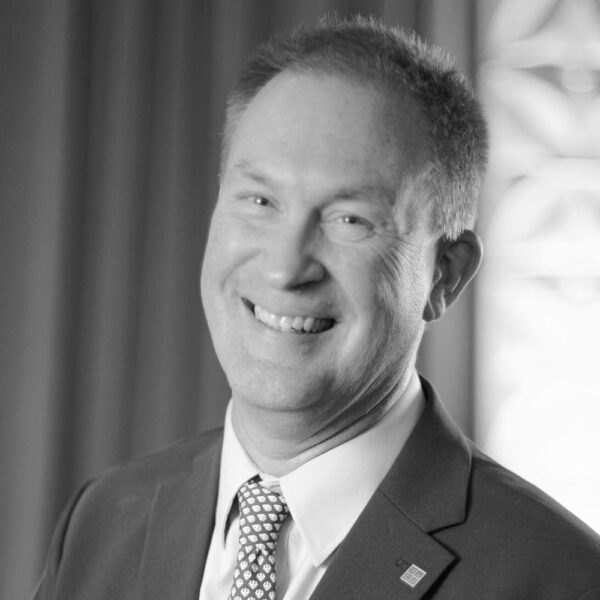Editor’s note: This is Rick Pierce’s final President’s Message as he transitions to immediate past president effective July 2024. We thank Rick for his leadership and contributions and look forward to hearing from incoming president Tina Mattison in the fall edition of the Court Manager.
Recently, I took the advice of a colleague to invest some time reading a book called Hope Rising: How the Science of Hope Can Change Your Life. I admit, I was more than a bit skeptical when viewing the title. Hope? A science? The authors, Attorney Casey Gwinn and Dr. Chan Hellman, one a prosecutor, the other a university professor of psychology, arrived at this message of hope from unique and very different perspectives, yet one to which we as court professionals can relate.
I won’t spoil the read for you but point out the many highlights as a path each one of us can choose to follow in our career and personal lives. The first point to note, the one that grabs everyone who reads or hears this message:
Hope is a science with over 2,000 studies conducted that demonstratehope is the single (or best) predictor of personal and professional success. Hope helps us accurately assess our situation when faced with a personal crisis/adversity; set valued goals; and the means to achieve (pathway). Lastly, high hope provides the willpower or inspiration to pursue your pathway.
Critics and cynics will dispute this science without outright dismissal of hope. What they really dismiss is wishful thinking. Wishing and hoping are not the same even though we often use the words interchangeably. Hope is a call to action. Yet we cannot live in a high level of hope continuously. In our personal and professional lives, we experience adversity, even trauma. We must “survive” these periods of adversity or trauma. Hope returns after this stage has passed.
In my opinion, hope, like empathy, is neither exclusively inalienable nor is it solely for the individual. Hope, like empathy, is a learned process and is capable of being “shared” or “spread like a contagion” to others close to you in both the workplace and the home. This is the culture you choose to create. Yes, it is difficult to alter a culture individually. Yes, it takes time and commitment to change a culture and you can only address or control your response. Still, it is possible. Hope, like empathy, is neither transactional nor coercive, rather it is unquestionably relational.
Dr. Rick Snyder, the initial author of the concept of hope as a science once wrote, “Hope is a belief that a thriving future is possible, and you have the power to make it happen.” He would follow up this belief that high levels of hope include goal setting, a strategy to attain those goals, and the willpower or commitment to achieve these objectives. He, along with the authors of this book, say that is when one scores a high level of hope. They have taken an abstract and made it measurable and quantifiable; the level of hope becomes a predictor of one’s life, personal or professional, moving forward.
I will follow up with a bit more detail in a book review for an upcoming issue of the Court Express. For now, let us resolve ourselves to know the difference between “wishing” for something or some response and, instead, “hoping”—something we have control over to strive for some level of success or happiness.
As I leave this position of president of NACM, I have a high level of hope for the future of this association. I have worked closely with the rising leaders and past leaders who continue to contribute. Their passion for their profession and this association is matched by their knowledge and skill of leading their staff in their respective courts and the membership of NACM.
I challenge all of you to act with a high level of purposeful passion, serving your why. I also encourage you to react dispassionately to negativity and adversity. I admit I often do not meet a standard of response that I desire, but I am comforted that many of you do. The last is to always exhibit compassion regardless of the perceived need of others. We do not show as much compassion as we should or as needed out of fear. It’s time to park our ego, stop playing the shame-and-blame game and trust one another. Without trust, there is no connection, only caution, hesitancy, fear even of our fellow brothers and sisters. It is through trust that we will connect with one another.
In closing, I was asked if I could redo my life and perfect it, what would it look like. I know I would like to see all people have a high level of hope. I’m confident I would be positively impacted as well. I know I am not rich in stature or fortune, but I am enriched with excellent colleagues both in Pennsylvania and across the world whose relationships have blossomed into meaningful and lasting friendships.
That is why I continue to hold the rope (of hope) and ask you to do the same. We do make a difference in the world, even if it is one person at a time.
Rick Pierce
Judicial Programs Administrator
Administrative Office of the Courts, Pennsylvania


